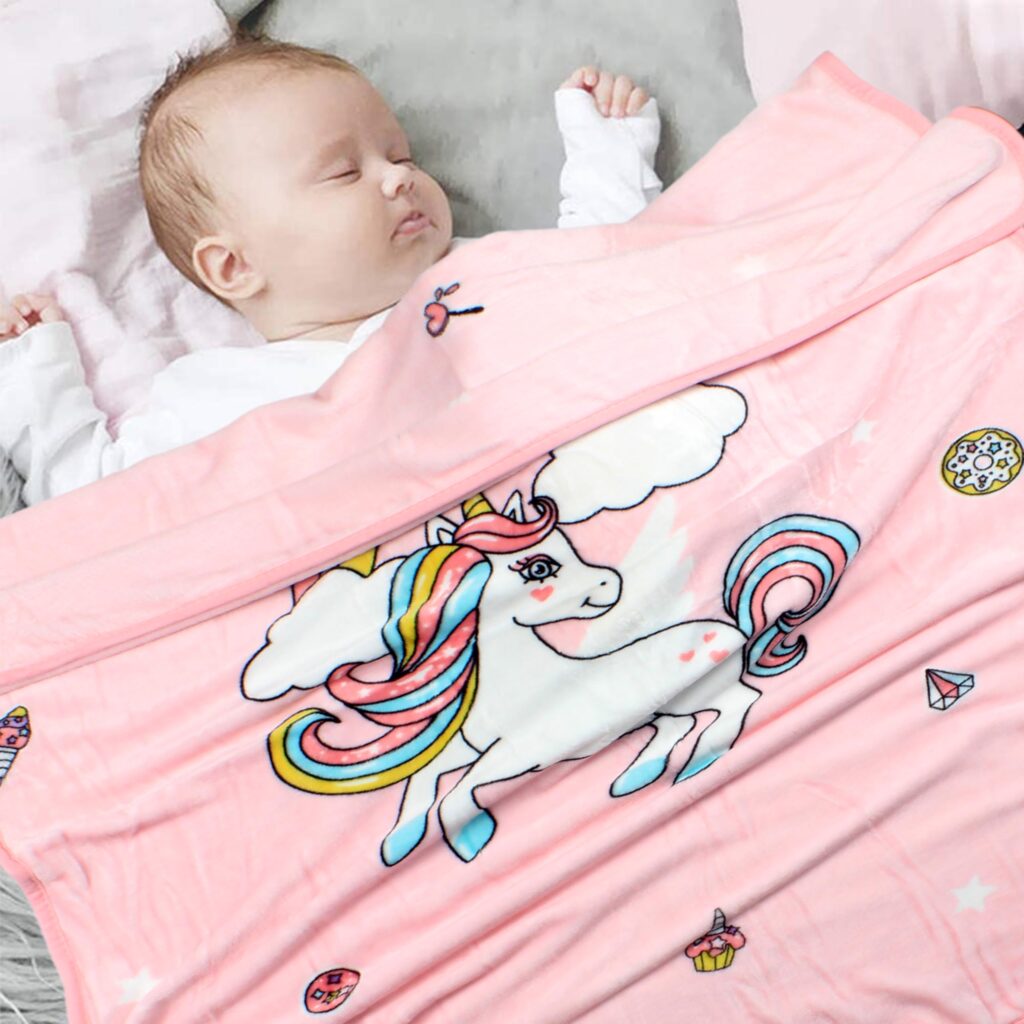
When it comes to caring for a baby, comfort and safety are top priorities for every parent. Among the many essentials, a soft blanket for your baby stands out as a must-have item. Not only does a soft blanket provide warmth and coziness, but it also offers significant benefits for your baby’s skin health, emotional comfort, and sleep quality. In this article, we’ll explore why choosing the right soft blanket is so important and how it can positively impact your baby’s well-being.
The Importance of Softness for Baby Blankets
Babies have incredibly delicate and sensitive skin, which means the fabrics that come into contact with them must be gentle and free from irritation. Rough or coarse materials can cause redness, rashes, or allergic reactions. That’s why softness isn’t just a luxury—it’s a necessity.
Materials like organic cotton, bamboo, fleece, and muslin are commonly recommended because they offer a plush, gentle feel that soothes the skin. Organic cotton and bamboo are particularly beneficial as they are hypoallergenic and often free from harmful chemicals, reducing the risk of irritation or allergic responses.
Choosing a soft blanket also helps prevent issues like eczema flare-ups or discomfort caused by scratching. It’s a small but crucial way to protect your baby’s sensitive skin and keep them happy and calm.
Comfort Benefits of Using a Soft Blanket for Baby
Beyond skin health, a soft blanket provides essential emotional and physical comfort for babies. Babies are naturally comforted by soft textures—they associate softness with safety and warmth. This can have a calming effect, reducing fussiness and anxiety.
Physical comfort is just as important. A soft blanket provides gentle warmth without feeling stiff or scratchy. This helps regulate your baby’s body temperature, making them feel secure and snug. Whether it’s during a nap, bedtime, or cuddle time, the softness of a blanket can create a soothing environment that encourages relaxation.
In fact, many babies develop strong attachments to their soft blankets, often referring to them as “loveys.” These blankets offer reassurance, especially in unfamiliar or stressful situations, by giving the baby a familiar, comforting object to hold.
Safety Considerations When Choosing a Soft Blanket
While softness is crucial, safety cannot be overlooked when selecting a blanket for your baby. It’s important to choose blankets made from breathable fabrics that reduce the risk of overheating—a common concern linked to Sudden Infant Death Syndrome (SIDS).
Hypoallergenic materials are also key, as they prevent allergic reactions and skin irritation. Look for blankets that have safety certifications like OEKO-TEX, which ensure fabrics are free from harmful substances.
Additionally, blanket size and thickness matter. The blanket should be large enough to cover your baby comfortably but not so large that it becomes a suffocation hazard. Lightweight blankets are usually safer for younger babies, while thicker blankets can be introduced as your baby grows older and can regulate their body temperature better.
How Soft Blankets Improve Baby’s Sleep
Sleep quality is essential for a baby’s growth and development, and soft blankets can play a significant role in promoting better sleep. The tactile comfort of a soft blanket helps babies feel secure and relaxed, making it easier for them to fall asleep and stay asleep longer.
Incorporating a soft blanket into your baby’s bedtime routine can signal that it’s time to sleep. The familiar texture provides a calming sensory input that helps soothe the baby, reducing fussiness and promoting deeper rest.
However, it’s important to follow safe sleep guidelines and avoid loose blankets for infants under 12 months. Instead, opt for lightweight, breathable blankets or wearable blankets designed to offer warmth without compromising safety.
Tips for Caring for a Soft Blanket for Baby
To maintain the softness and cleanliness of your baby’s blanket, regular washing is essential. Use gentle, baby-safe detergents and wash blankets on a delicate cycle to preserve the fabric’s texture. Avoid harsh chemicals and fabric softeners that might irritate your baby’s skin.
Make sure to replace blankets if they become worn out, threadbare, or lose their softness over time. A clean, soft blanket is vital to keeping your baby comfortable and healthy.
Conclusion
A soft blanket for your baby is much more than just a cozy accessory—it’s a vital item that offers comfort, safety, and sleep benefits. By choosing blankets made from gentle, hypoallergenic materials, you protect your baby’s sensitive skin and provide emotional security. The right soft blanket can help your baby relax, sleep better, and feel safe in their environment.
Investing in a quality soft blanket is a simple yet effective way to enhance your baby’s daily comfort and well-being. When picking out a blanket, prioritize softness, safety, and breathability, and you’ll be giving your little one a snuggly companion they’ll love for months to come.
